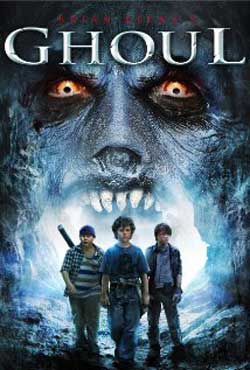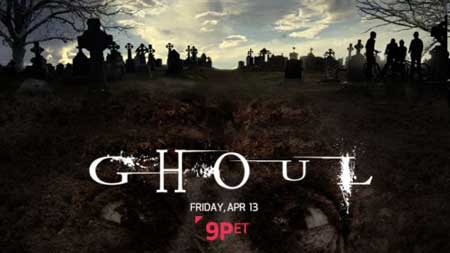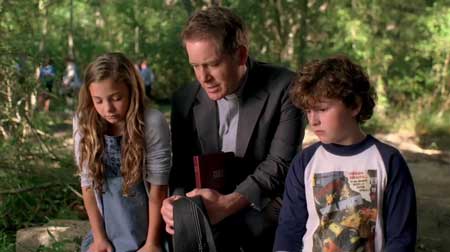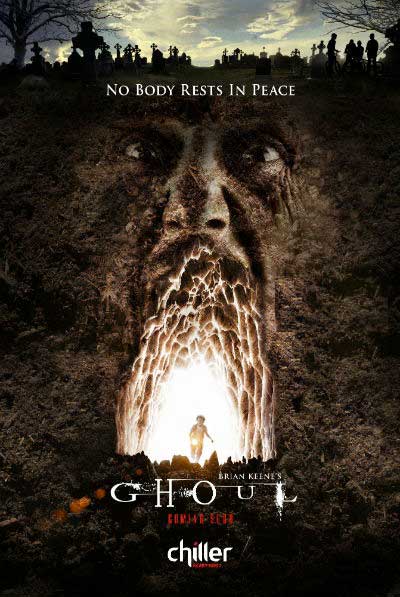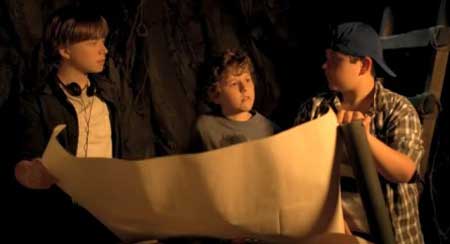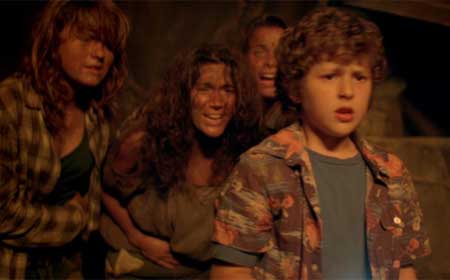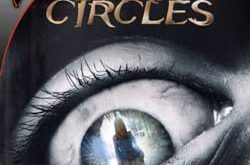SYNOPSIS:
In small town America in the 1980s, a young boy comes to believe that the local abandoned mine may be home to a gruesome monster.
REVIEW:
GHOUL is very much in the Stephen King tradition of horror tales centred around children, with all the secret hideouts, midnight meet-ups, rival gangs, domestic issues, bicycles, etc., that entails. Unfortunately several things conspire against it being a success: a very poor period sense, a script that apes the mechanics of a King story without the richness, and a central narrative that doesn’t stand up to scrutiny.
Timmy Graco (Nolan Gould) is a typical kid: he likes comic books, video games and hanging out with his friends. He and Doug (Jacob Bila) and Barry (Trevor Harker) have their own gang – and this is a time when being in a gang meant tree houses, water pistols, bicycles and so on – and have just finished work on their new underground hideout. But this is a rites-of-passage movie so Timmy’s youthful idyll is about to be shattered.
The first bad thing that happens is that his grandfather (Barry Corbin) to whom he is very close keels over while he’s doing the gardening, thereby introducing Timmy to the concept of mortality. Then a local lad and his girlfriend disappear in mysterious and bloody circumstances leading the gang to think that there might be more than a grain of truth to the old rumours about a ghoul living in the abandoned mine tunnels.
There are plenty of sub-plots going on around the central story. First, Doug has a troubled home life: his father has moved out, leaving him at home with his alcoholic mother who may or may not be abusing him. Then there’s Barry who also has a difficult home life: his father – the local cemetery keeper – is a foul-mouthed alcoholic bully who harbours a very guilty secret. As if that’s not enough, the three friends also have a rival gang – kids from the wrong side of the tracks – to keep tabs on.
So there’s plenty going on but unfortunately for the viewer it’s all handled in a desultory way by director Gregory Wilson. There is precious little flair in either the camerawork or the set ups which places a tremendous responsibility on the shoulders of the young cast. To their credit they do a decent job: Timmy is insufferably winsome but both Doug and Barry are more fleshed-out characters and as a result Jacob Bila and Trevor Harker stand out more.
The film attempts to paint a picture of small town America with a dark side but, in my view, it doesn’t get the balance quite right. Stephen King is a master of this technique and what he does so well is blend together the homely and the grotesque, rather than present them side by side as happens in GHOUL. What Wilson gives us is Timmy’s family, which is all sweetness and light, and then Doug’s family and Barry’s family which are dysfunctional hotbeds of child abuse, alcoholism, wife beating and grave robbing. In other words, there is no realism to it, no credibility. As if to underline that point, the film has a very poor visual period sense. Did kids really say “Awesome!” in 1984? They didn’t where I come from. And they certainly didn’t have Justin Bieber haircuts either.
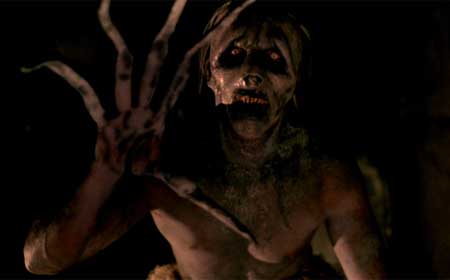 Another King trick which the film fails to pull off is finding the right balance between light and shade, between reality and horror. As a TV movie there is always going to be a limit as to how much the film can show but I would suggest that it is too frightening for children and not frightening enough for adults. Similarly, introducing themes such as child abuse and wife beating are lapses in taste more akin to exploitation rather than a serious attempt to tackle the issues. Similarly, the film’s climax – in which the origin of the ghoul is explained – is so far-fetched that it will either leave you thinking “But hang on a minute …” or simply scoffing. In the end, then, GHOUL is neither one thing nor the other: it’s not a chilling horror, nor is it a charming evocation of a time gone by.
Another King trick which the film fails to pull off is finding the right balance between light and shade, between reality and horror. As a TV movie there is always going to be a limit as to how much the film can show but I would suggest that it is too frightening for children and not frightening enough for adults. Similarly, introducing themes such as child abuse and wife beating are lapses in taste more akin to exploitation rather than a serious attempt to tackle the issues. Similarly, the film’s climax – in which the origin of the ghoul is explained – is so far-fetched that it will either leave you thinking “But hang on a minute …” or simply scoffing. In the end, then, GHOUL is neither one thing nor the other: it’s not a chilling horror, nor is it a charming evocation of a time gone by.
Ghoul (2012)
 Horror News | HNN Official Site | Horror Movies,Trailers, Reviews
Horror News | HNN Official Site | Horror Movies,Trailers, Reviews
